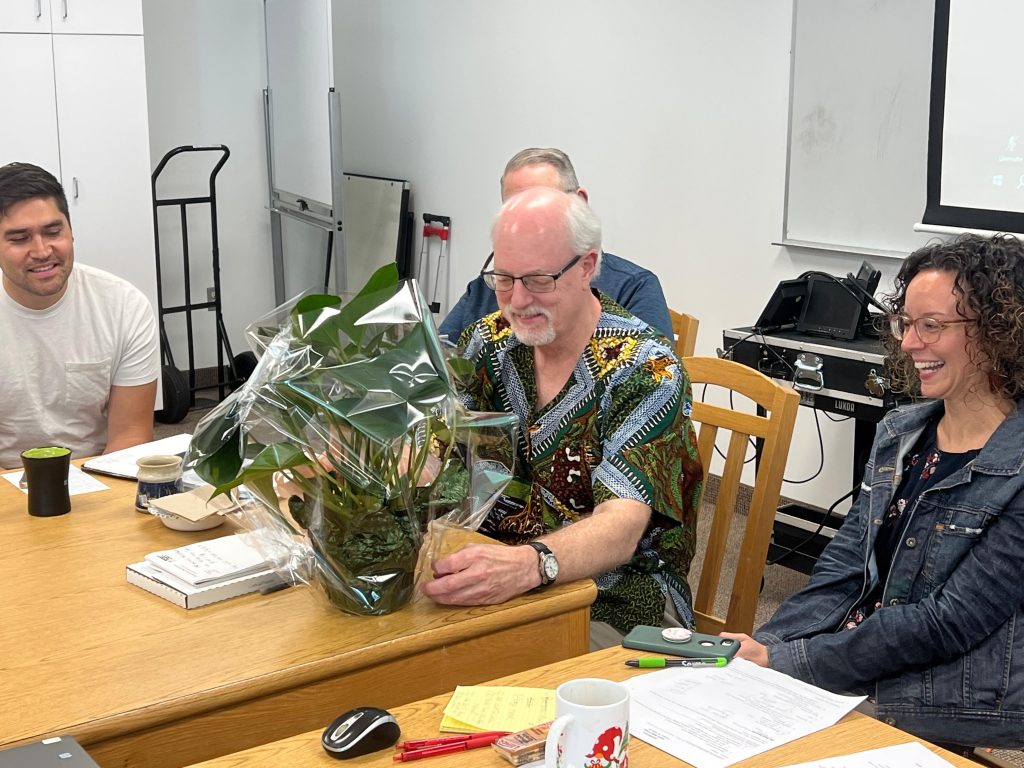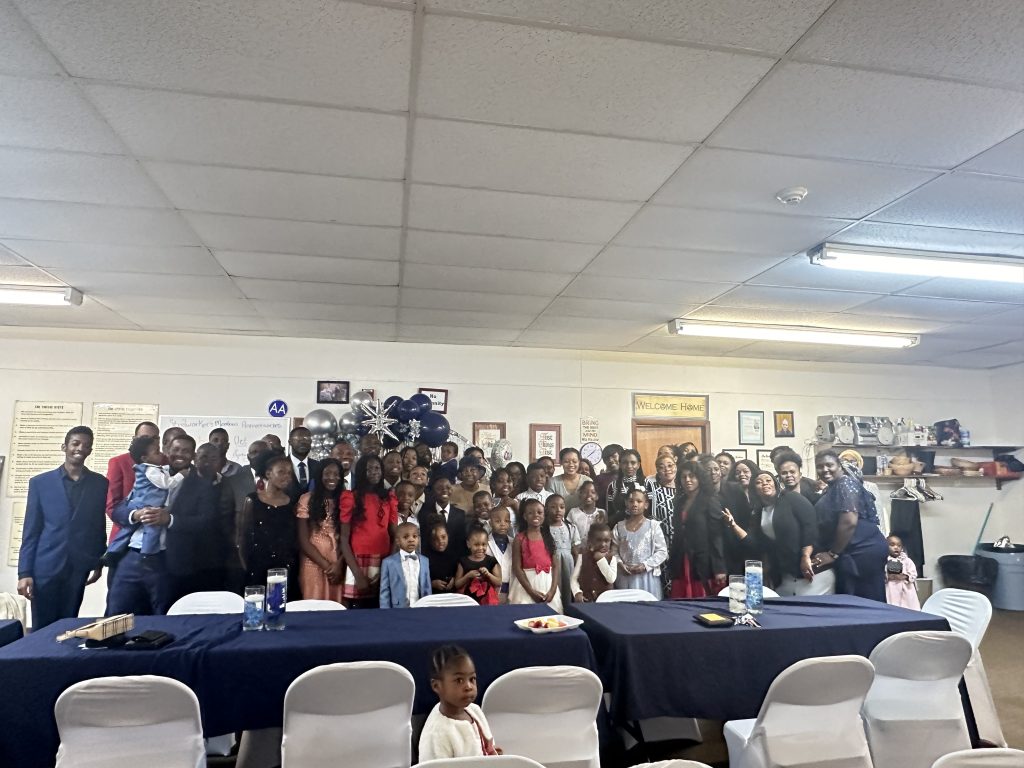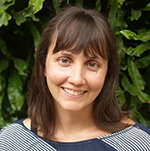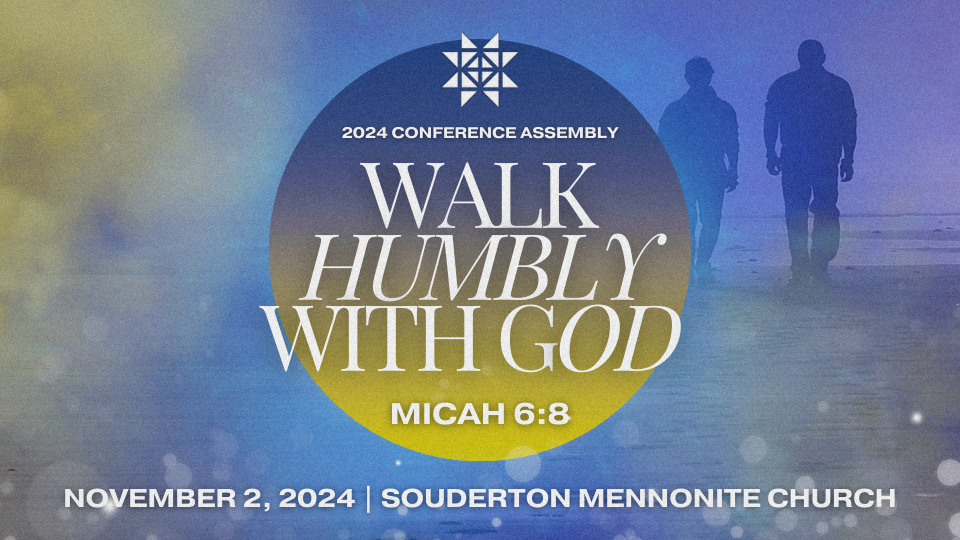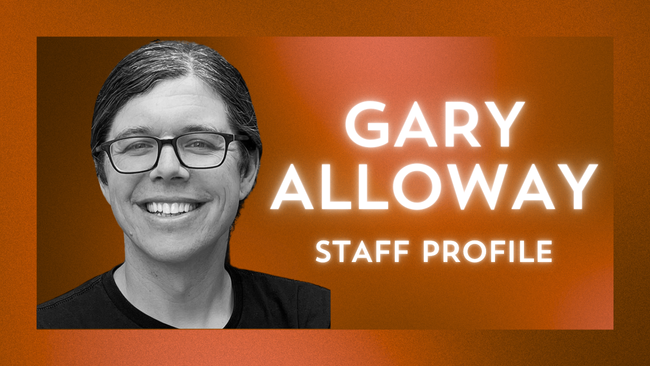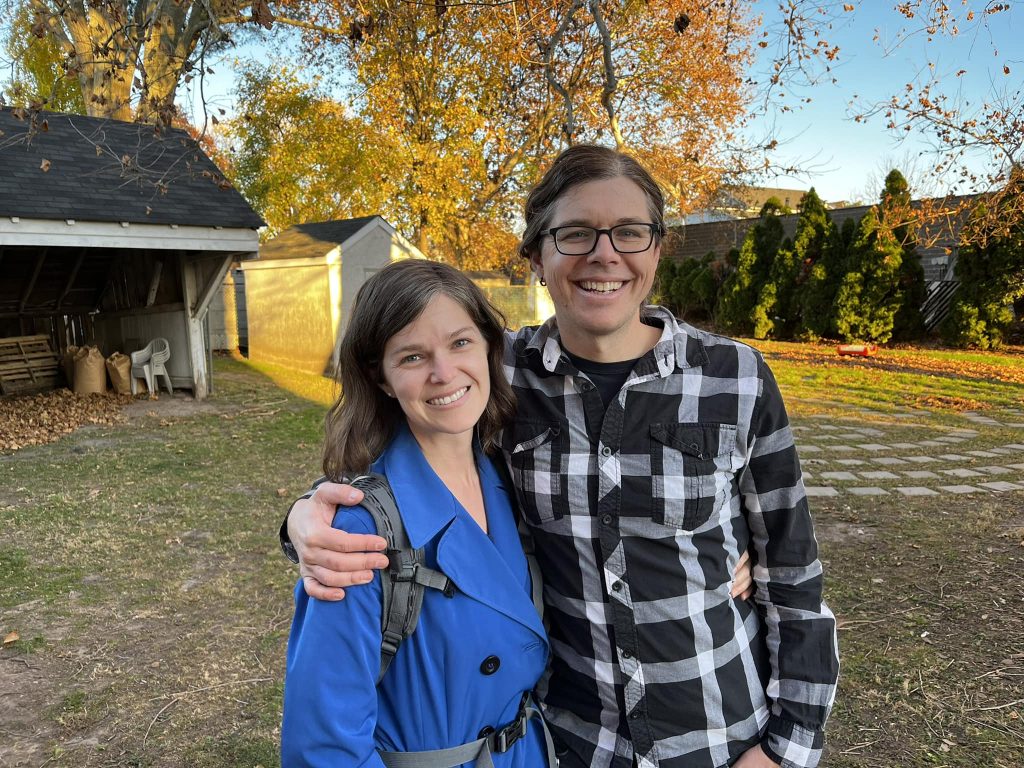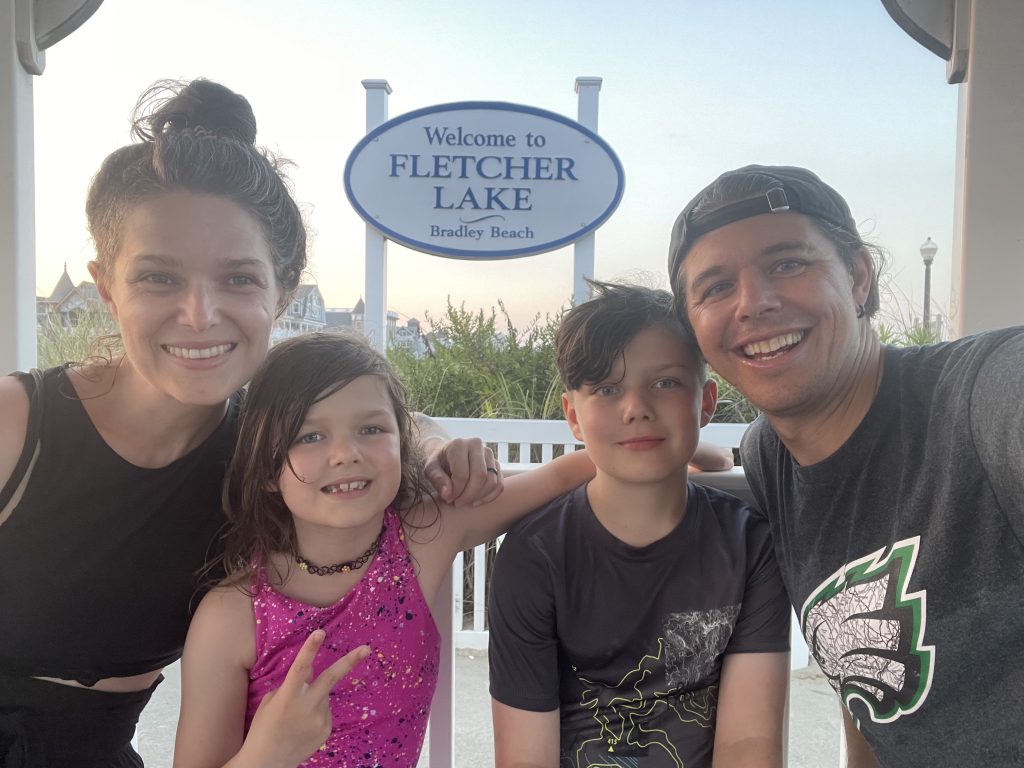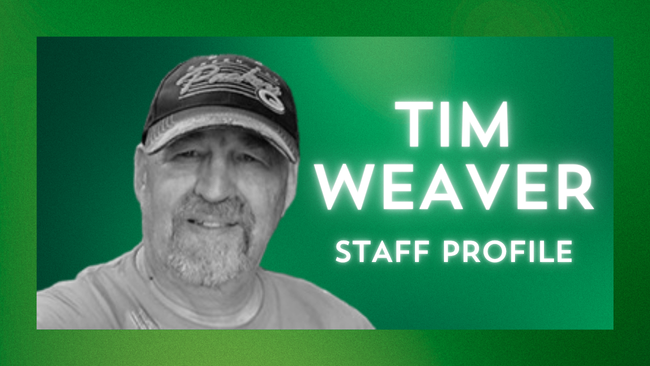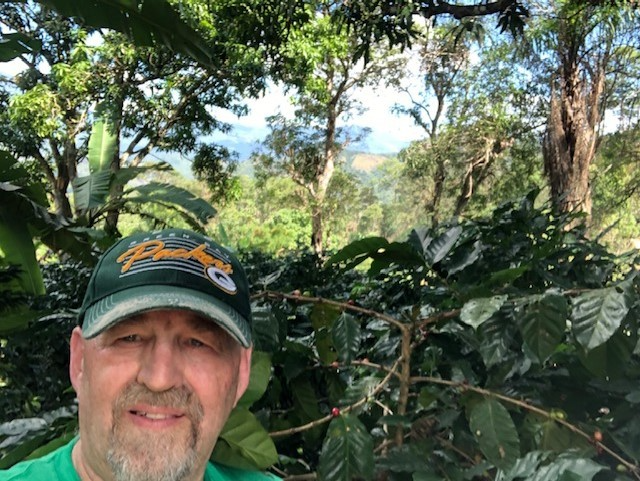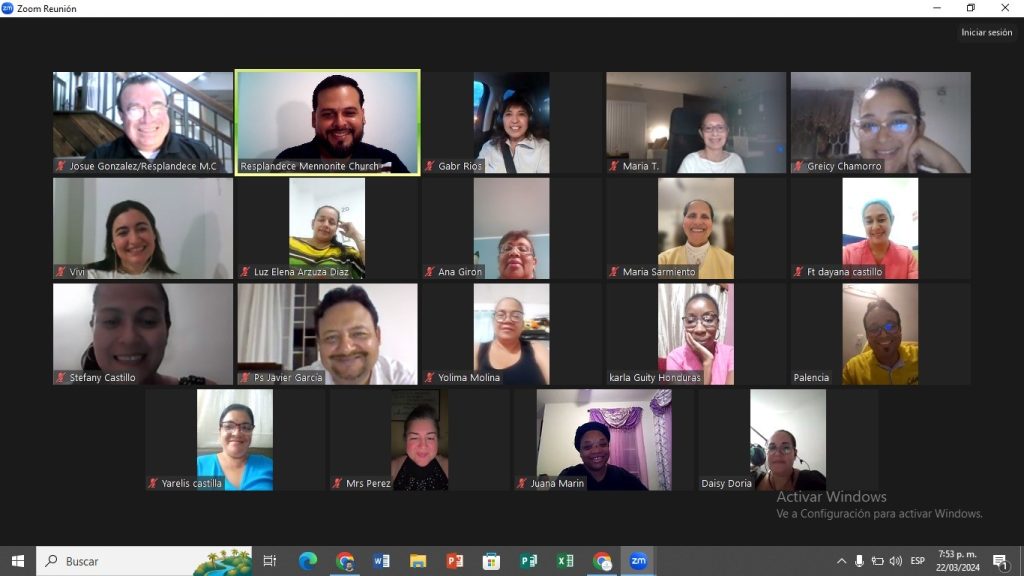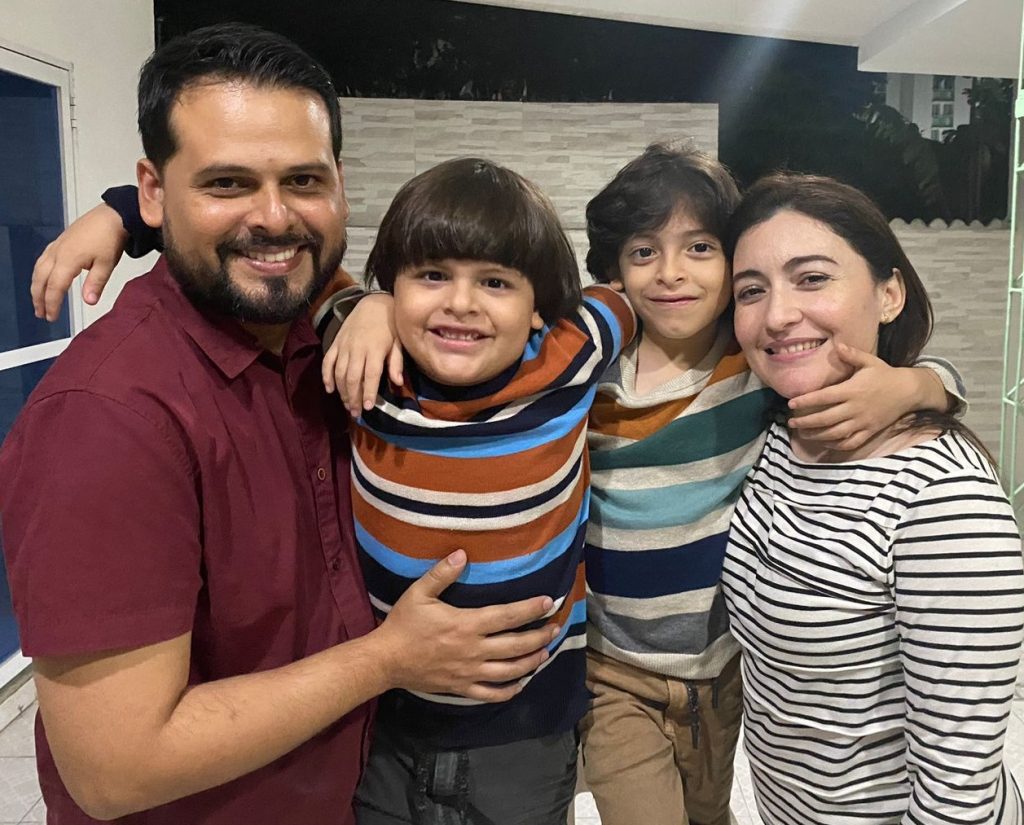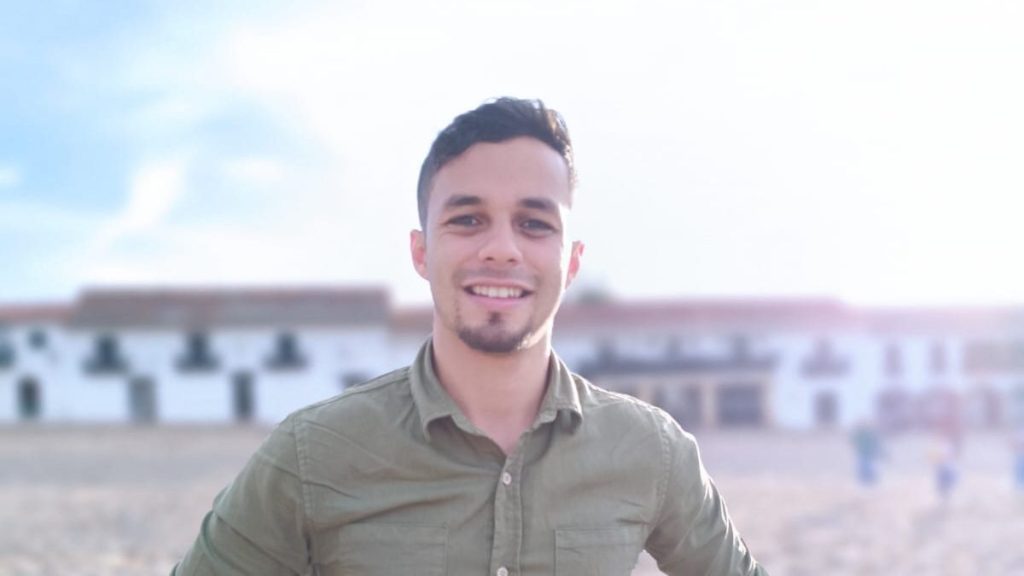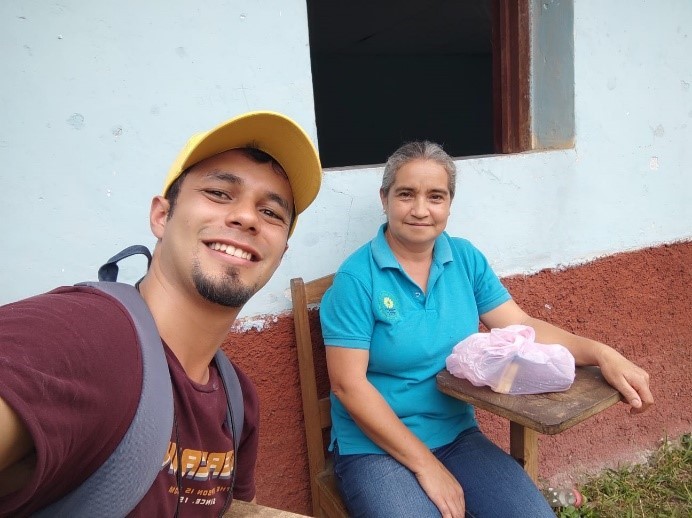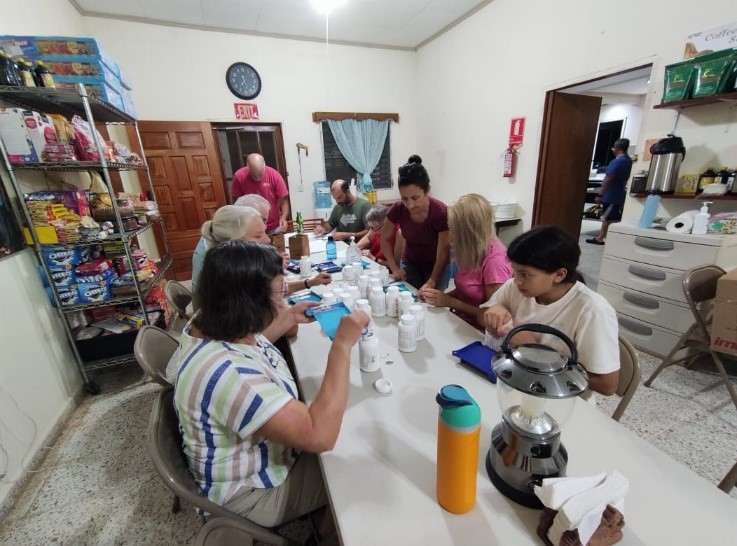After 23 years of faithful service to Franconia Conference and then Mosaic Mennonite Conference, Conrad Martin (Blooming Glen [PA]) will retire from his role as Director of Finance and FMC Properties Board’s (the property-holding company of the Conference) Chief Operating Officer on October 31, 2024.
His work has touched each person who is a member of a Mosaic congregation or Conference-Related Ministry. Since early September, he has been training the new Director of Finance, Paulus Thalathoti (Plains [Hatfield, PA]).
Some of those he worked with on the Conference’s Finance Committee reflected on Martin’s impact over the years.
“Our Conference has been so blessed by the dedicated attention Conrad has placed on the stewardship of our resources–dollars, properties, and relationships,” shared Barb Rice, (Deep Run East [Perkasie, PA). “As a long-time Finance Committee member, I was always confident that every detail was properly accounted for.”
“Conrad always had his finger on the financial pulse of the conference and was able to give helpful financial insight to projects or mission opportunities as they arose,” reflected Cory Longacre (Souderton [PA] Mennonite), who has served as the Finance Committee Chair for the past seven years.
“He served Franconia Mennonite Conference (FMC) and Mosaic faithfully as if the assets and accounts were his own. I appreciate how Conrad is working diligently to pass the baton to Paulus and finishing strong, so our conference doesn’t miss a beat.”
As Martin has been reflecting on his years in this role, he has recalled many memories and wanted to share some of the highlights:
Three-legged stool
“The first Conference executive I worked for, Phil Bergey, described Franconia Conference as a three-legged stool. The first leg was the many congregations of the region, meeting the spiritual needs of individuals. The second leg was the many Conference-Related Ministries (CRMs), meeting physical needs. The third leg was the many Mennonite businesses, meeting the financial needs of the Conference, churches, and CRMs. I pray we can continue to foster strong relationships with each of these groups.”
E3
“I loved E3 (Equipping Leaders, to Empower others, to Embrace God’s mission). This was the mission statement of Franconia Conference for many years. The staff set aside a full day to finetune the statement, so that it was meaningful and memorable. While this is not the formal mission statement of the Conference today, it can still be the way we do ministry.”
One IVEPer can change the world
“Her name is Henny Samadi. She came to the Conference from Indonesia through the Mennonite Central Committee IVEP program. She helped the Conference connect with independent Indonesian congregations that were new to south Philadelphia. I will never forget her youthful exuberance and how her work continues to reverberate many years later because of how those Indonesian congregations are such an important part of our Conference now.”
If you build it, they will come
“In the early years of becoming a multilingual conference, Conference leaders decided to purchase translation equipment. We didn’t need it often at that time, but they had the foresight that we would eventually have many languages in the Conference and would want everyone to be able to participate. I was given the small job of setting up the equipment and handing out headsets at Assembly. I enjoyed that task because it gave me the opportunity to meet new people.”
Owning a shopping center
“It was the dream in the 1980s of a few businesspersons within the Conference to purchase a shopping center, renovate it, put good tenants in place, and sell it to the Conference to become an income stream for the Conference for years to come. In 2001, I sat in on the settlement of the purchase, in the presence of these visionaries. One of hats I wore was to manage this facility. It continues to be a blessing to the Conference financially.”
Did it have to be on Christmas Day?
“Managing a shopping center isn’t always convenient. One Christmas I got a call that the power was out at the shopping center. My day was filled with several trips there, monitoring the progress by the power company, as a transformer on the property had blown out, causing a loss of power to the whole neighborhood. It was not the merriest of Christmases.”
Daring to dream
“In the early 2000s, Conference leaders were wrestling with the concept of property ownership. Many people wondered why the Conference owned a farm. We were blown away when an offer came to buy the farm for more money than we could have imagined it was worth. We began to dream of all the ways the Conference could use this money. Growth of ministries, assisting congregations, and investing funds for the future. A Conference Vision and Financial Plan taskforce was formed and held lots of discussions. In the end, I believe the right decision was made; hold onto the farm property and sell the development rights (ensuring that the farm would stay a farm).”
Investing in the Kingdom
“In the mid-2000s, Phil Bergey took a trip to the Netherlands to learn about the remnant of Mennonites living there. Phil shared that they are incredibly wealthy, but the church is nearly dead. The message I carry from his trip is that putting money into savings or properties isn’t the only way to invest the resources that have been entrusted to you. Spending money on ministry is an investment in the kingdom of God, not unlike the parable of the talents.”
Merger and tears
“It was the dream of many in Franconia and Eastern District Conferences to ‘undo’ the separation between them that had existed for more than a century. The process of bringing the two together took many years. The day of the merger vote was emotional for many people. As we tabulated each vote, I remember counting; yes, yes, yes; on and on it went. I will never forget the look of shock that Sherri Binder (the merger taskforce chair) had when I informed her of the unanimous decision to merge. I was in tears. It was a joyous occasion.”
COVID loneliness
“While many were able to work from their homes during the pandemic, the nature of my work led me to come into the Conference office every day. It was lonely being the only person in the office. I had experiences working alone in various assignments I had overseas, so perhaps these helped prepare me, but it was still difficult. I appreciated the support I received from my fellow colleagues from a distance.”
Elderly wisdom
“One of the reasons the loneliness of COVID was so difficult was because I had many years of Conference work sharing meals with wise elders. Although there were many, I mention two: Claude Good and Noah Kolb. It was energizing to talk with Claude about his days in Mexico and his excitement of connecting with persons from around the world during the onset of The Worm Project. He also taught me a lot about humility. Noah taught me so much about gardening, that it became one of my favorite hobbies. I miss those conversations.”
A Rich history
“I would be amiss not to name the influence Rich Moyer had on my early years with the Conference. He came to the Conference in the 1980s and carried so much history that was invaluable to me, as a newcomer to eastern Pennsylvania and Franconia Conference, in adjusting to my job. I had several years of overlap to learn from him. I hope the memories of the past 23 years will not be lost after I leave.”
Just-a-swingin’
“Phil also described Franconia Conference as a swing (based on the teachings of Leonard Sweet). To swing, one needs to lean back and kick their feet out. He said the Conference was leaning back on our rich 300-year history, all the way back into the arms of Jesus, while simultaneously kicking forward into the future, in alignment with where the Spirit is leading us. I hope we continue to define Mosaic Conference as one that builds on its strong historical foundation, as we move out into the future.”
A simple blessing
“I pray that God will continue to bless the work of Mosaic Conference as we strive to be faithful in our work and to be good stewards of the resources God has given us.”
Thank you, Conrad, for your intentional and thoughtful stewardship and leadership over all these years! You will be missed.
